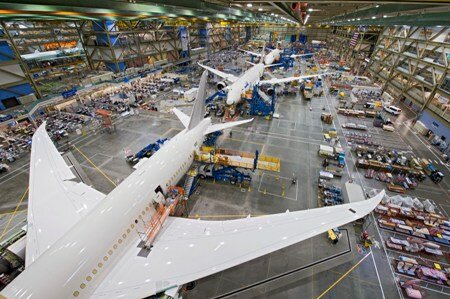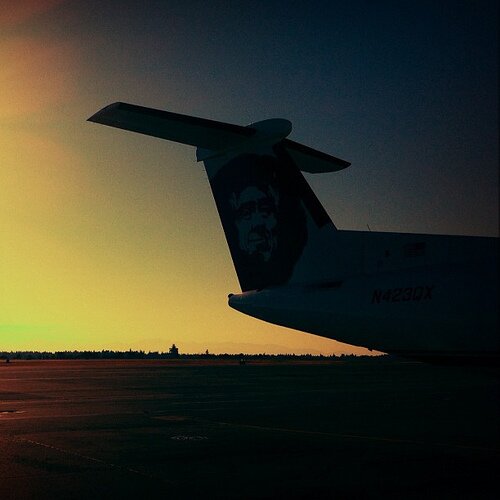
It was the best of times–Boeing’s commercial aircraft order backlog stood at 4,373 at the end of 2012; it was the worst of times–Boeing’s 787 Dreamliner, with a backlog of nearly 800 jet orders, finished the year with a net loss of sales due to cancellations.
The 787 Dreamliner program was supposed to, year after delayed year, lift Boeing stock prices to new heights.
But with a Japan Airlines 787 smoldering at a gate in Boston today, Boeing stock (BA) has dipped to $76 from a high near $78. Is it the usual gremlins associated with a new plane’s rollout, or evidence of a development program that’s trying to fix design mistakes and speed up order fulfillment at the same time?
The fire at Logan started in an electrical compartment, deepening concerns about the plane’s electrical system, after United Airlines and Qatar Airways experienced similar problems. (Which also brought drops in stock price.) But the Boston.com story also mentions that:
On Dec. 5, the FAA ordered inspections of all 38 787s in service after it received reports of fuel leaks on two aircraft. Several incorrectly installed engine fuel feed manifold couplings on in-service and in-production 787s were subsequently discovered.
Not all of the 787’s mishaps have been, strictly speaking, Boeing’s fault. The cracks in GE engines were a General Electric problem. The horizontal stabilizer? That was Italian manufacturer Alenia.
But passengers who need to make sure their flight isn’t going to be cancelled due to “teething pains” don’t really care about assigning blame — they’ll just fly something else — and airlines with long-delayed 787s in service are already fuming about their new planes’ reliability. They need the 787 to fly, and fly well, not just to keep passengers happy, but to stay in business.
As the Los Angeles Times reports, the 787’s vaunted fuel efficiency is real: “Since All Nippon began flying the planes in November 2011, it has flown nearly 7 million miles and saved 21 percent more fuel per flight than a different aircraft of similar size.”
In April 2012, Smart Money said, because of the 787 and other reasons, Boeing stocks could gain 35 percent over the next year or two, but so far the litany of 787 issues aircraft-wide have kept investors on the sidelines, waiting for the smoke to clear.
